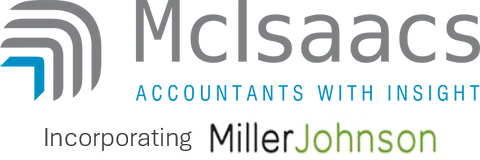TAX WORKING GROUP INTERIM REPORT

The Labour Government established the Tax Working Group ("the Group") in January 2018 to review the existing New Zealand tax framework and to provide recommendations for improvements to the fairness, balance and structure of the tax system over the next 10 years. An Interim Report was released on 20 September 2018, to provide interim conclusions on twelve areas of concern for New Zealanders, based on the thousands of submissions received during their two-month public consultation
One of the most topical issues is the potential introduction of capital gains tax. The report discusses potential design options for a capital gains tax, but the report makes it clear that the Group is still forming its view on whether to recommend a capital gains tax at all. Broadly, a capital gains tax could apply on a realised basis as assets are sold or on a deemed return basis. Assets captured would include interests in land, intangible property, income-earning assets not already taxed on sale, and shares in companies. The Group confirms that family homes and personal assets such as cars, boats and jewellery should be excluded.
Another key area discussed is the taxation of retirement savings. The Group considers high-income earners are likely to be saving adequately, hence they have suggested a package of modest retirement saving incentives aimed at middle and low-earners. This includes the removal of Employee Superannuation Contribution Tax (ESCT) of 3% for employees earning up to $48,000 per annum, and a five percentage point reduction for each of the lower PIE rates applying to KiwiSaver accounts.
On the topic of international tax, the interim recommendation is to 'wait and see' what approaches are adopted by other countries. The Group does not want to suggest a regime that could potentially cause negative retaliatory action from other countries, risking harm to our export industries.
The Group is also "weighing up their options" for the current rates and thresholds for personal income tax. The focus for personal income tax is ensuring compliance by the rising number of self-employed.
For business, the Group recommend maintaining the current company tax regime and rates, including retention of the imputation system. They have not recommended the introduction of a progressive company tax, or an alternative basis of taxation for smaller business, instead focusing on providing support for smaller businesses through simplification of the tax compliance process. For example, by increasing the provisional tax application threshold and the $10,000 de minimis threshold for automatic deduction of legal fees.
The Group was specifically excluded from considering an increase in the GST rate, however it received many public submissions on a potential reduction. After analysing the effects this would have, the Group does not recommend a reduction, nor removal of GST from certain products such as food and drink, on the basis that such measures would be poorly targeted and that more effective ways are available to provide assistance to low and middle income families.
In addition to these main areas, the Group considered a few more specific topics, including recommending the retention of the 17.5% rate of tax for Maori Authorities, and extending the rate to subsidiaries of Maori Authorities.
The views expressed in the interim report are not final, and the Group are welcoming feedback from all New Zealanders before the final report is released in February 2019.
Takapuna Office
Ground Floor, Takapuna Finance Centre
159 Hurstmere Road
P O Box 331 626
Takapuna, Auckland


